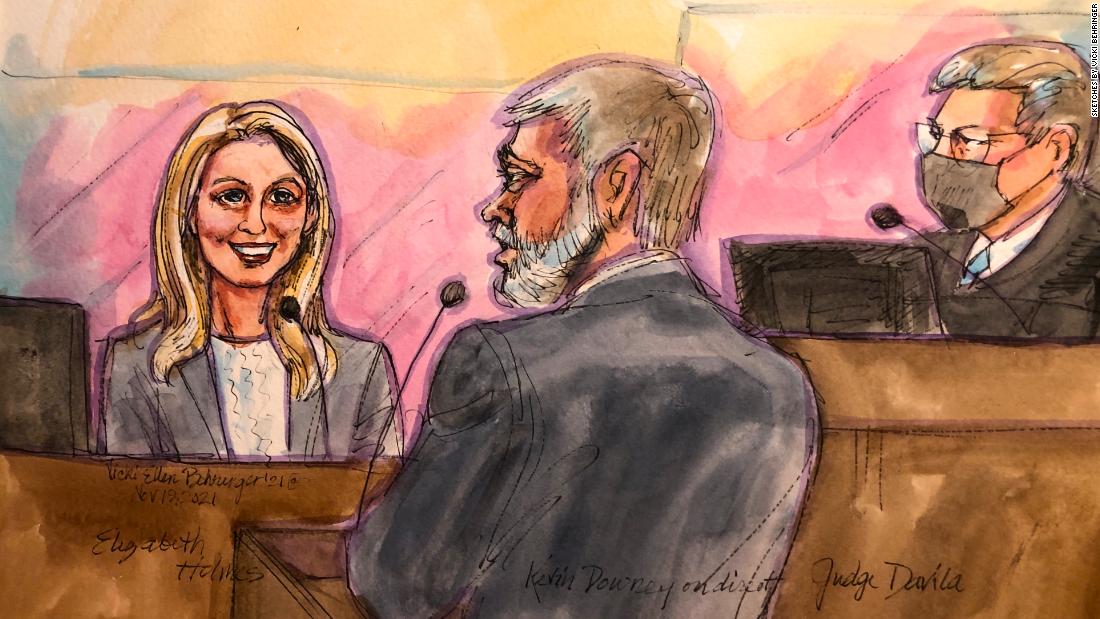
Until last week, it was unclear not just whether Elizabeth Holmes would take the stand, but whether her defense team would put on a case.
Holmes’ attorney John Cline indicated in an October hearing: “I can’t tell you at this point who we’re going to call as witnesses. We may. That’s all that I can say. We may not put on a case. We may call Ms. Holmes; we may not.”
Then on Friday, shortly after the prosecution rested its case, the defense surprised onlookers by calling Holmes to the stand as its third witness — at 3pm on a Friday. She testified for roughly one hour before court recessed for the weekend.
There are a host of reasons why the defense may have called Holmes to the stand when it did. It may have been something as simple as having expected the testimony of its second witness to stretch through the end of the day.
But Mark MacDougall, a white-collar defense lawyer and former federal prosecutor, said it could also have been a strategy. “Putting Elizabeth on the stand for a short time on Friday could be intended to acclimate her – just before the weekend break – to the stress of testifying in court,” he told CNN Business.
While there’s no indication whether the defense will call additional witnesses, she may have been called third in order to better set up other witnesses for the defense. Before the start of the trial, for example, pre-court documents indicated she may claim she was the victim of a decade-long abusive relationship with Ramesh “Sunny” Balwani, her ex-boyfriend and the former COO of Theranos. (Balwani is set to face federal prosecutors over the same charges as Holmes next year; he has pleaded not guilty.)
“If the defense still plans to call psychological experts or other witnesses who may talk about Elizabeth’s state of mind, that testimony will be much more effective if the jurors have already heard Elizabeth’s story in her own words,” said MacDougall.
